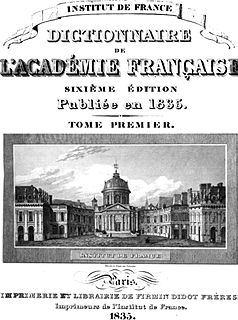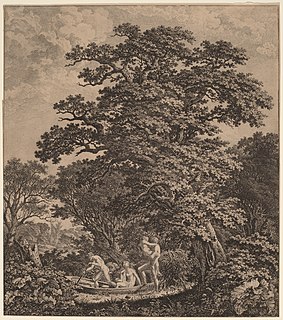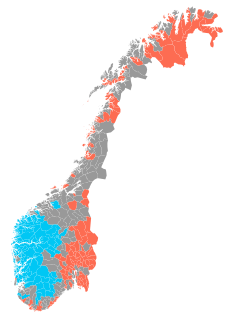 W
WLinguistic purism or linguistic protectionism is the prescriptive practice of defining or recognizing one variety of a language as being purer or of intrinsically higher quality than other varieties. Linguistic purism was institutionalized through language academies, and their decisions often have the force of law.
 W
WThe Declaration on the Common Language was issued in 2017 by a group of intellectuals and NGOs from Croatia, Bosnia and Herzegovina, Montenegro, and Serbia who were working under the banner of a project called "Language and Nationalism". The Declaration states that Croats, Bosniaks, Serbs and Montenegrins have a common standard language of the polycentric type.
 W
WThe Gospel riots, which took place on the streets of Athens in November 1901, were primarily a protest against the publication in the newspaper Akropolis of a translation into modern spoken Greek of the Gospel of Matthew, although other motives also played a part. The disorder reached a climax on 8 November, "Black Thursday", when eight demonstrators were killed.
 W
WAn inkhorn term is a loanword, or a word coined from existing roots, which is deemed to be unnecessary or overly pretentious.
 W
WCarl Wilhelm Kolbe was a German etcher, graphic artist and author. He was generally referred to as The Elder to distinguish him from his nephew; a painter who was also named Carl Wilhelm Kolbe.
 W
WThe Norwegian language conflict is an ongoing controversy in Norwegian culture and politics related to the written versions of Norwegian. From 1536/1537 until 1814, Danish was the standard written language of Norway due to the union of crowns with Denmark, in which time the Danish Empire was founded. As a result, the overall form of chosen modern written Norwegian and its leaning towards or away from Danish underpins controversies in anti-imperialistic nationalism, rural versus urban cultures, literary history, diglossia, spelling reform, and orthography.
 W
WThani Tamil Iyakkam is a linguistic-purity movement in Tamil literature which attempts to avoid loanwords from Sanskrit, English and other languages. The movement began in the writings of Maraimalai Adigal, Paventhar Bharathidasan, Devaneya Pavanar, and Pavalareru Perunchitthiranaar, and was propagated in the Thenmozhi literary magazine founded by Pavalareru Perunchithiranar. V. G. Suryanarayana Sastri, a professor, was a 20th-century figure in the movement; in 1902 he demanded classical-language status for Tamil, which it received in 2004.
 W
WThe replacing of loanwords in Turkish is part of a policy of Turkification of Atatürk. The Ottoman Turkish language had many loanwords from Arabic and Persian, but also European languages such as French, Greek, and Italian origin—which were officially replaced with their Turkish counterparts suggested by the Turkish Language Association as a part of the cultural reforms—in the broader framework of Atatürk's Reforms—following the foundation of the Republic of Turkey.